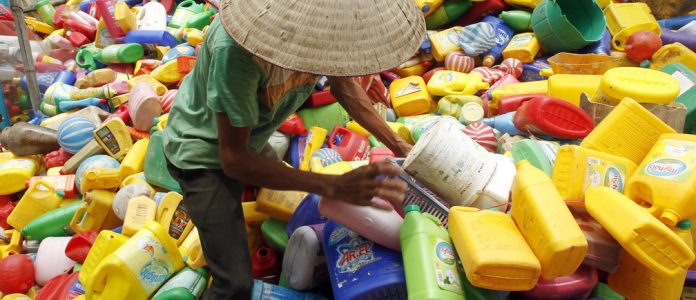Here’s an environmental riddle: When is the plastic waste issue not a plastic waste issue? Answer: When it’s also a carbon and climate change issue, a social issue, and a circular economy issue.
That’s the vexing problem we face as we continue reducing plastic waste, especially the plastic waste in our oceans. It’s not a stand-alone topic. It’s intertwined with other critical environmental, social and economic topics. And if we’re going to make real progress toward one of them, we must make progress toward all of them.
We don’t have the luxury to pick an environmental issue to work on. In this case, it’s a “check all boxes above” exercise.
That’s not an easy path. Consider the paradox of modern plastics.
The paradox of plastic
Plastics are an indispensable part of our economic growth and a vital part of our journey toward a lower-carbon future. Since 2004, for example, automobile fuel efficiency has climbed 29% while related greenhouse gas emissions have fallen by 23%. Plastics have played a huge part in that success by providing lightweight and durable alternatives to heavier materials such as steel.
The environmental cost of plastic alternatives, for instance, is 3.8 times higher than the plastic itself. That’s one reason plastics are the preferred packaging choice for so many globally traded goods.
Plastics provide the world’s growing population with more access to fresh foods, safe drinking water and medicines while at the same time reducing food spoilage and waste. That translates directly into lower carbon emissions in the supply chain, plus a better and healthier quality of life for billions of people. Read more…



